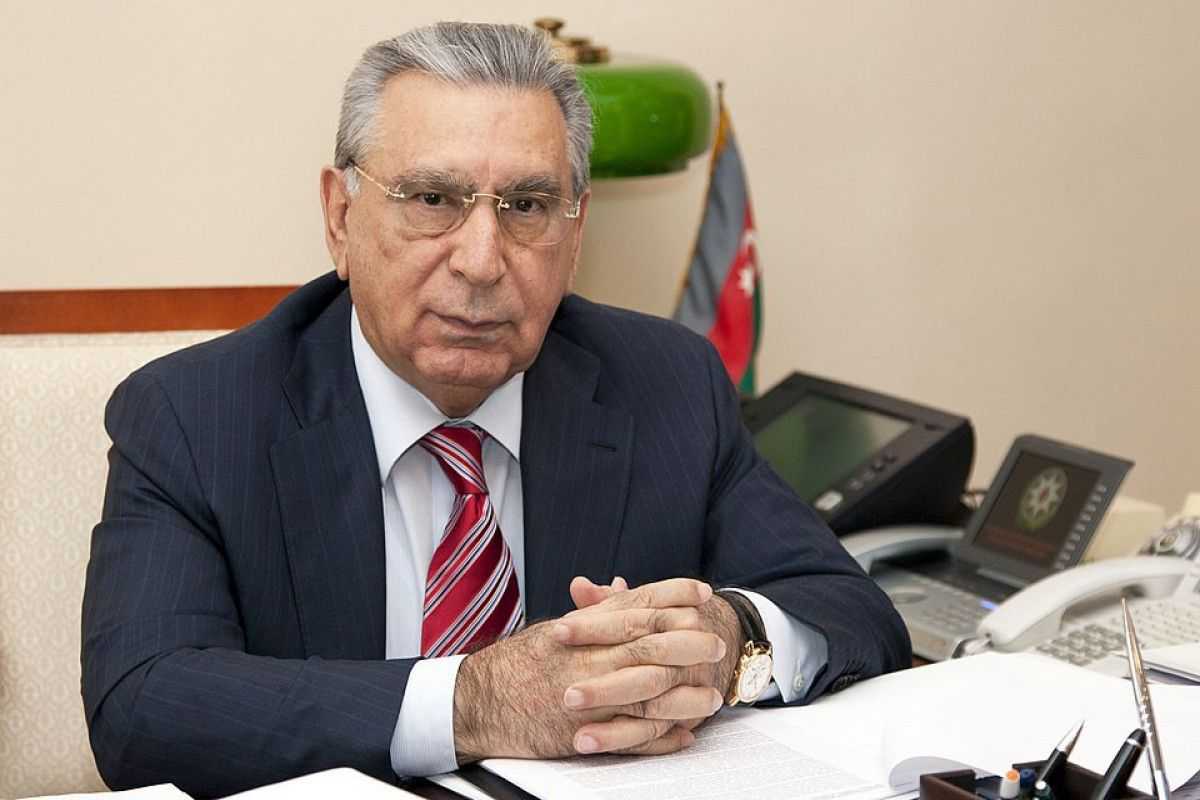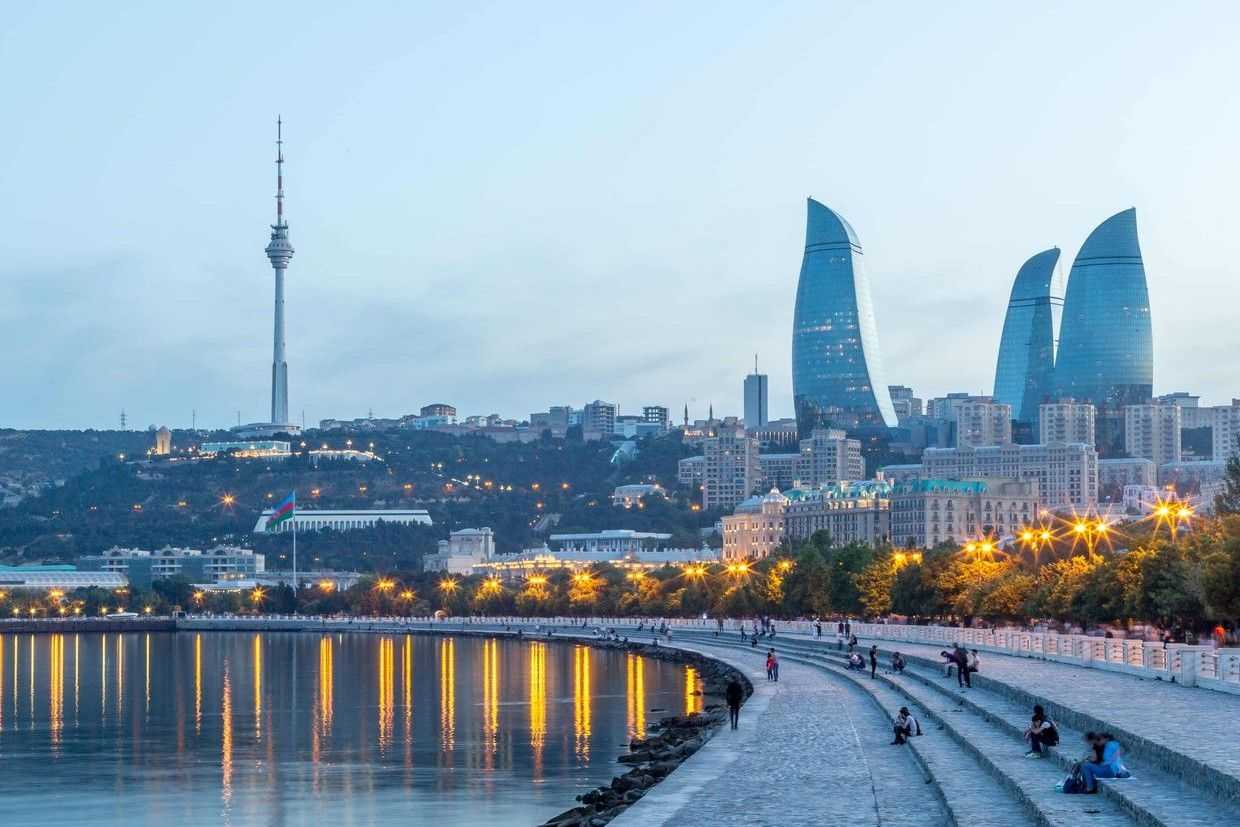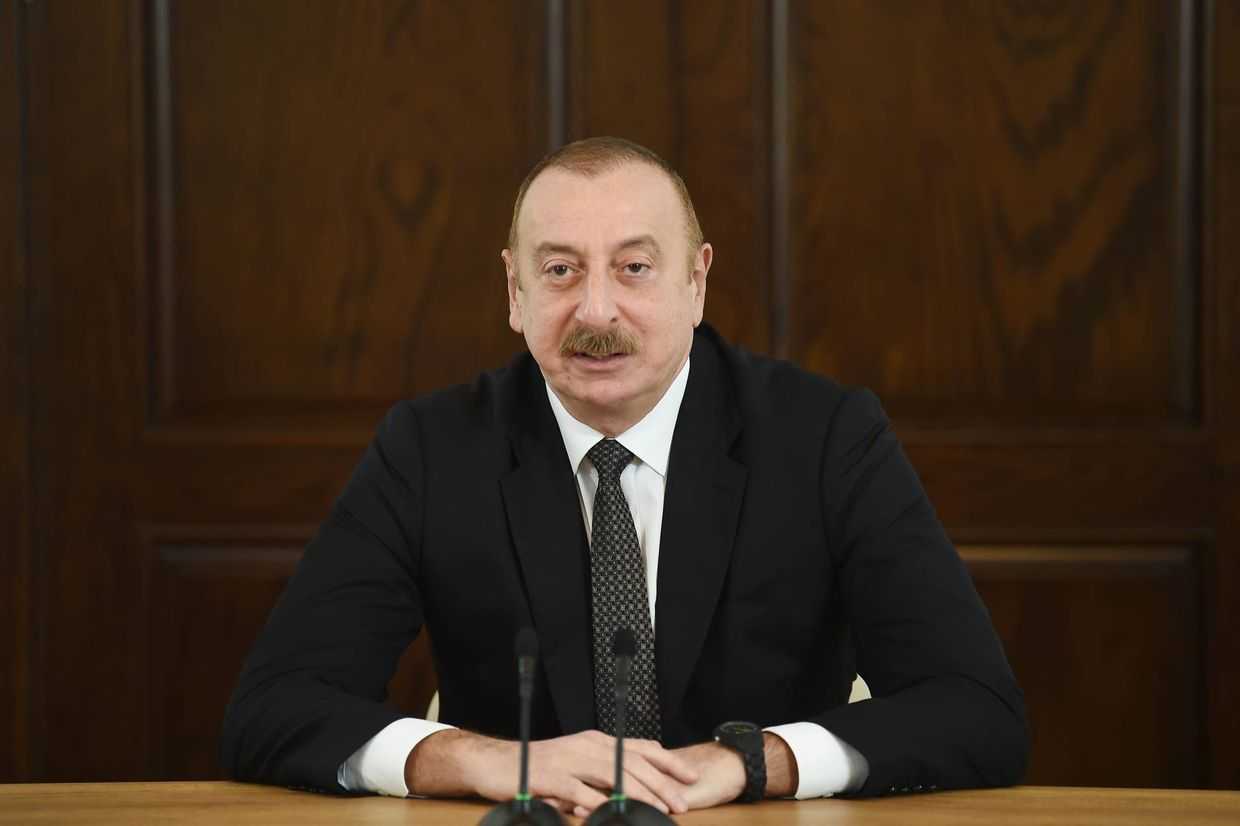

The Azerbaijani authorities have dropped new charges against imprisoned anti-corruption blogger Mehman Huseynov following large protests in the capital. Thousands gathered in Baku on Saturday calling for Huseynov’s release and an end to political prosecutions and corruption in the country.
Huseynov, 26, was sentenced to two years in prison in March 2017 on charges of defamation, after accusing the police of abducting and torturing him.
On Tuesday, the Prosecutor General’s Office dropped new charges against Huseynov of resisting and assaulting a prison guard. The charges were brought in December, just months before he was due to be released.
The decision to drop the charges, according to the Prosecutor General’s Office, was made because of Huseynov’s young age, his good behaviour in prison, that he ‘currently’ posed no threat to society, and that his father was in need of care.
On 26 December, faced with up to seven years in prison, Huseynov announced he was going on hunger strike against what he claimed were ‘bogus charges’, and was joined by at least 20 others.
[Read on OC Media: Mass hunger strikes in Azerbaijan against ‘political prosecutions’]
On Monday, Azerbaijani news agency Report published an appeal allegedly written by Huseynov to Aliyev, in which, according to them, he insisted he ‘never hit a prison officer’ and asked the president to ensure a ‘correct investigation’ of his case.
Soon after, state news agency AzerTac quoted the president’s Assistant for Work with Law Enforcement Bodies and Military Issues, Fuad Alasgarov, as saying that the President had recommended the Prosecutor General ensure Huseynov’s case was treated ‘fairly’.
AzerTac quoted him as saying that Aliyev considered the case after Huseynov appealed to him on 20 January and ‘a group of human rights activists’ also appealed about his case two days earlier.
Natig Jafarli, Executive Secretary of the opposition Republican Alternative Party (ReAL), told OC Media he did not exclude the possibility that given the latest developments, Huseynov may now be released from prison in the coming days.
A sanctioned rally with internet blackouts
The demonstration near the Mahsul Stadium in Baku’s Yasamal District was permitted by the city authorities. Nevertheless, organisers claimed during the rally that the authorities had detained around 100 activists ahead of the gathering.
The Interior Ministry claimed around 2,800 people participated, while organisers put the number at 10,000. Caucasian Knot estimated that ‘at least 5,000’ took part.
Police cordoned the area and were checking and counting participants. Local media reported that mobile internet and phone connections were unavailable around the stadium during the protest.
According to the OCCRP, false weather forecasts were published on government sites prior to the rally to discourage turnout.
The protest was organised by the National Council of Democratic Forces (NCDF), a coalition of opposition parties that includes the Popular Front Party of Azerbaijan (APFP).
Other major opposition parties — the Musavat and the Republican Alternative Party (ReAL) — also joined the rally.
Protest slogans and speeches included anti-corruption messages, and a joint statement from opposition parties demanded both freedom for political prisoners as well as a ‘return of the national wealth taken “offshore” by the corrupt government’.
A joint investigation in 2017 by 17 newspapers including the OCCRP, the Guardian, and others, uncovered a scheme that allegedly channelled $2.9 billion from companies linked to president Aliyev, state ministries, and the International Bank of Azerbaijan, to offshore bank accounts.
Footage from the protest (Radio Azadlig / YouTube)
The ReAL Party’s Natig Jafarli told OC Media that the protest was different from previous rallies due to the ‘substantial number of participants’.
He attributed the high turnout to the ‘sensitive’ nature of the case against Huseynov which he said ‘triggered acute feelings of injustice and anger, especially among young people who had been following his work when he was free’.
‘The second reason was the announcement of Ilgar Mammadov, recently released from prison, that we would address the rally’, he added.
Jafarli said that ‘political prisoners’ facing additional charges triggered public discontent, which he called a ‘red line’ that the government should never cross.
‘I think the government saw the public reaction and they will arrive at the right conclusions’, Jafarli said shortly before news of Mehman’s public appeal broke.
According to Azerbaijani human rights activist Najmin Kamil, the demonstration was ‘unique’ in that it was not related to any specific socio-economic issue or a large event such as an election.
‘It was purely in demand of releasing political prisoners, which previously was not an issue of high concern for ordinary people. Certainly, Mehman Huseynov’s case and social networks had a significant impact in grabbing attention and acting’, Kamil told OC Media.
According to Anar Mammadli, head of local rights group the Election Monitoring and Democracy Studies Centre, while the main focus of the event was the issue of political prisoners, demands included ‘socio-economic concerns’ too.
Mammadli attributed President Aliyev’s decision to reconsider Huseynov’s case to the public outrage surrounding the case, and said the rally was also a factor.
‘But we should understand that there are dozens of political prisoners in jail and the government should release all of them to build political dialogue in the country’, Mammadli told OC Media.
Local and international support
After Huseynov announced his hunger strike, at least 20 people joined him in the following days and weeks, including nine people serving time in Azerbaijani prisons, six members of the opposition Musavat party, and journalists, among them — investigative reporter Khadija Ismayilova.
Ismayilova announced on Saturday that she had ended her hunger strike.
Mehman Huseynov’s brother, Emin Huseynov, who runs Azerbaijani rights group the Institute for Reporters’ Freedom and Safety (IRFS) along with his brother, told Caucasian Knot that Mehman’s lawyers had the opportunity to visit him in prison on 18 January, ten days after a visit by a delegation from the European Union.
Emin repeated claims by the EU’s foreign policy chief Federica Mogherini, which were provided to the European Parliament’s plenary debate on Azerbaijan — that Mehman had started accepting liquids.
On 17 January Mogherini underlined the importance of EU–Azerbaijan Association Agreement negotiations as an opportunity to encourage officials in Baku to improve their human rights record.
A meeting within the EU–Azerbaijan Subcommittee on Justice Affairs and Human Rights is scheduled for 5 February.
On the same day, the European Parliament adopted a resolution calling for the ‘immediate and unconditional release’ of Huseynov and other ‘political prisoners’.
MEPs expressed ‘great concern for the condition of Huseynov who is in danger of dying while imprisoned’.
The European Parliament said that Huseynov’s case was not isolated and demanded Azerbaijan end a ‘crackdown’ on critics, and ‘ensure that independent civil society groups, activists and human rights defenders can operate without undue hindrance or fear of persecution’.
The resolution, supported by 533 MEPs against 28, criticised legal restrictions on non-governmental organisations and their access to foreign funding and accused the Azerbaijani authorities of freezing accounts of civil society groups and their leaders.
Members of the European Parliament also indicated that the ongoing negotiations between the EU and Azerbaijan on a new partnership agreement were ‘conditional’ on the country’s domestic human rights and democracy standing.
The European Parliament stressed this conditionality in a July 2018 resolution, stating that parliament would not support any comprehensive agreement with Azerbaijan as long as the country did not ‘respect fundamental EU values and rights’.
‘Political prisoners’ in Azerbaijan
International rights groups like Human Rights Watch (HRW), Freedom House, and Amnesty International have frequently condemned Azerbaijan’s human rights record.
In their 2019 report released on the same day the European Parliament resolution was adopted, HRW said that Azerbaijan’s ‘appalling human rights record did not improve in 2018’.
The report said that the authorities keep at least 43 civil society and political activists and journalists wrongfully imprisoned.
‘Azerbaijan’s international partners criticized abuses, but did not condition ties with Azerbaijan on improvements’, reads the report.
Freedom House’s Nation in Transit 2018 report named Azerbaijan as one of ‘Eurasia’s entrenched autocracies — [where] personalised regimes keep a tight grip on power, suppressing political competition and targeting independent activists and journalists who dare to speak out’.
This article was updated on 22 January 2019.









